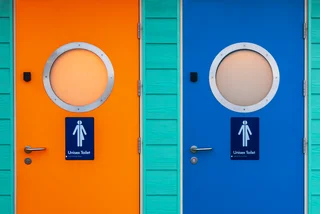A recent study released by the Ministry of Health has revealed a significant increase in the number of people seeking gender reassignment in the Czech Republic, ČT24 reports.
Last year saw a record-breaking 208 applications for gender change, indicating a 6-percent year-on-year rise. The mandatory castration required to have the operation continues to be a deterrent for potential patients.
More acceptance of transgenderism
Ministry of Health spokesperson Ondřej Jakob attributes the rise in gender-change applications to increased awareness among the general public, growing tolerance in society, and the willingness of individuals to admit their situations and seek professional help.
According to the Health Ministry commission that handles these requests, the majority of applications are approved. Nevertheless, the gender transition process typically spans approximately two years.
A 2021 poll by research firm Nielsen found that around one-third of Czechs have a positive view of transgender people in the country, with the remainder of people expressing either a negative or uncertain view.
Government data shows that the majority of gender-reassignment applications come from individuals in their 20s and 30s, with a growing trend among teenagers. A department spokesperson noted that the most common transition is from female to male.
In a surprising development, Transparent, an organization aiding trans individuals in the Czech Republic, has noted an increase in older people joining their support groups. This underscores the significance of their decisions, made even after establishing families and heterosexual relationships.
Could Czech gender reassignment become easier?
Despite criticism from the EU and UN officials, the ministry has yet to make any adjustments to the process required for gender reassignment surgery.
The Ministry of Health has expressed its reluctance to simplify the process, saying it aims to protect patients and providers from the potential consequences of misguided decisions.
Nevertheless, critics, including government representative for human rights Klára Šimáčková Laurenčíková condemn the current Czech legislation, calling castration during sex change a human rights violation.
The Ministry of Justice is currently discussing the removal of the castration condition from the law, but such a change would requires broad political agreement, which is unlikely.












 Reading time: 2 minutes
Reading time: 2 minutes 


























